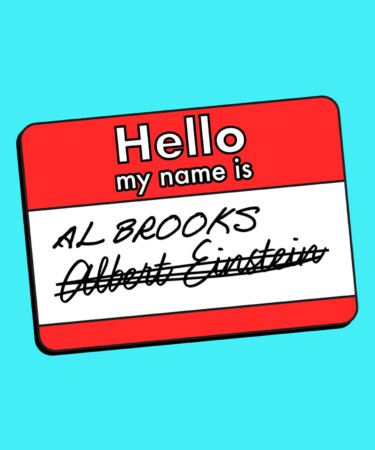This article is part of our Cocktail Chatter series, where we dive into the wild, weird, and wondrous corners of history to share over a cocktail and impress your friends.
In a world built upon sound stages, prop towns, and laugh tracks, it’s no shock that the majority of what we see in Hollywood is fake — almost every aspect of film and TV is manufactured to look and feel recognizable. Even the identities of some of Hollywood’s most famous actors are something of an illusion: Rather than going by the names they’re born with, many stars will choose another persona, a.k.a. a stage name, to appear when the credits roll. From Joaquin Phoenix and Jamie Foxx to Reese Witherspoon and Diane Keaton, stage names abound in the industry. And while some actors choose to employ a stage name simply to cultivate a more artistic image, there’s a much more technical reason that’s often behind the change.
When a performer applies for membership to the Screen Actors Guild-American Federation of Television and Radio Artists (SAG-AFTRA), the labor union representing performers and broadcasters, they’re forbidden from using the name of an already existing member of the union. Sure, standing out among the actors gunning for the same roles is ideal, but this rule is largely to help avoid confusion.
“It is SAG-AFTRA’s objective that no member uses a professional name which is the same as, or resembles so closely as to tend to be confused with, the name of any other member,” reads the union’s new member form. “SAG-AFTRA urges all applicants and members to minimize any personal or individual risk of liability by avoiding a name that may cause confusion. SAG-AFTRA shall not be responsible or legally liable in the event an applicant or member uses a professional name that may cause any confusion.”
That means that if a performer’s name is already taken — as was the case with Diane Keaton, whose birth-name is Diane Hall — they must choose another name to assume professionally. Actors often choose to add the middle initial of their given names in order to distinguish themselves from existing doppelgangers; “Back to the Future” star Michael J. Fox threw in the “J” to differentiate himself from late actor Michael Fox. When performers apply for membership to the Screen Actors Guild, they must provide three name choices in case their given or first-choice names are not available. Once the initiation fee has been paid, a final name-availability screening is done, at which point the new member’s professional name is finalized.
While SAG-AFTRA’s rules may be a primary reason why these alter egos exist, there are a slew of other factors that make stage names attractive. Some performers with common names (i.e., John or Anne) choose more unusual names to help them shine among their contemporaries. Other actors opt for stage names because their given names just don’t sound all that appealing: A man named Archibald Leach would eventually be known as the late Cary Grant. And for those with prominent family members in other industries, a new surname — looking at you, Olivia Wilde, formerly Cockburn — can help assert their own identity. On a personal level, stage names can help performers to create boundaries between their work and private lives, and aid in protecting their privacy.
So, whether the choice is SAG-related or just a way of cultivating an air of mystique, stage names are usually beneficial for those who adopt them. We can’t help but think about what ours might be.
